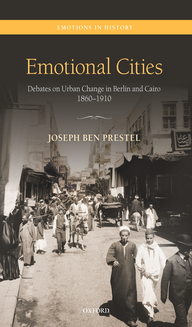Book Series "Emotions in History"
The series, jointly edited by Ute Frevert (MPIB) and Thomas Dixon (Queen Mary, University of London) with Oxford University Press takes various perspectives on emotions by drawing on the history of science, medicine, psychology, literature, art, religion, politics, and economics. Contributions range from medieval to modern periods and reach across regional and national boundaries.
Members of the "Center for the History of Emotions" are authors or contributors of the following titles of the series:





